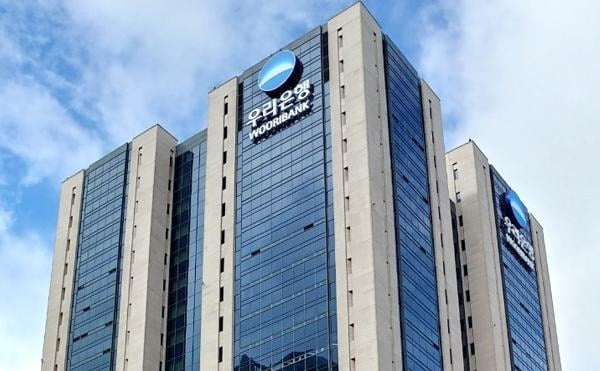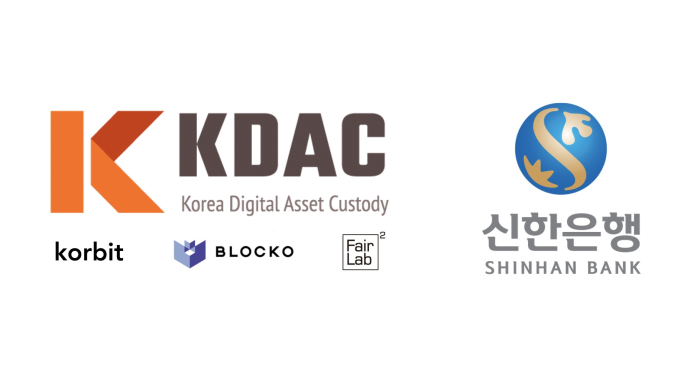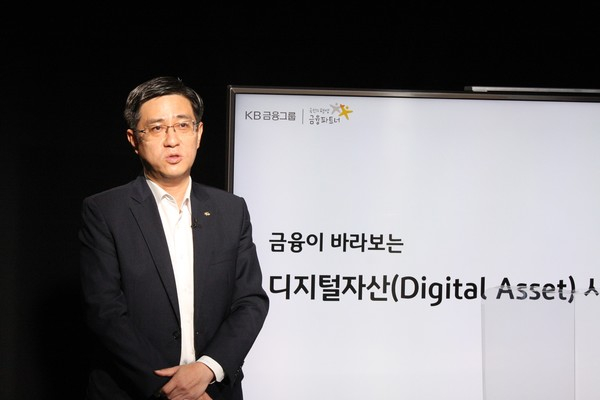Korean banks enter digital asset custody market in quick succession
The countryŌĆÖs current regulations permit banks to enter the market only through JVs or share investments
By Jul 11, 2021 (Gmt+09:00)
CarlyleŌĆÖs Rubenstein sees commercial real estate undervalued


Infrastructure secondaries continue to rise amid inflation: Stafford


Goldman Sachs names Choi Seoul office chief


Golf equipment maker Taylormade to refinance $222 mn of debt


NPS' former key players move to law firms as its voting power increases



Woori Financial Group has become South KoreaŌĆÖs third major banking group to enter the digital asset custody service (DACS) market, following KB Financial Group and Shinhan Financial Group.
According to the banking industry on July 11, the financial groupŌĆÖs banking unit Woori Bank has agreed to set up a digital asset custody joint venture (JV) with bitcoin-based fintech solutions provider Coinplug Inc.
Coinplug will be the largest shareholder of the JV, named D-Custody, while Woori Bank will be the second major shareholder. Sources said that the JV will be incorporated by next week at the earliest.
Digital asset custody is a service that safely stores and manages digital assets, including cryptocurrency, owned by various entities and organizations. Demand for the service has been growing lately, with a much higher number of Korean firms starting to own various types of cryptocurrencies for business diversification or investment purposes.
South KoreaŌĆÖs largest bank KB Kookmin Bank entered the DACS market by establishing Korea Digital Asset Co. (KODA) last November with domestic blockchain company Haechi Labs and blockchain-oriented venture fund Hashed.
Similarly, Shinhan Bank joined the scene earlier this year by becoming a strategic investor of Korea Digital Asset Custody Co. (KDAC), another DACS company founded by the digital asset exchange Korbit.

Another major bank, NH Bank, on July 8 announced plans to kick off its digital asset business together with Korea Information & Communications Co. and Hexlant Inc., a blockchain startup that develops digital wallet technologies.
CURRENT REGULATIONS IN KOREA
Korea currently doesnŌĆÖt allow domestic entities to use services provided by cryptocurrency exchanges. Thus, the companies and organizations in Korea must keep their cryptocurrencies in their own storage drives such as USBs, meaning a high risk of theft or loss.
In such a regulatory environment, digital asset-owning organizations have been calling for an expansion of digital asset custody services.
While these organizations would ideally want the countryŌĆÖs banks to keep their digital assets, as banks have traditionally been highly reliable custodians, KoreaŌĆÖs current laws also forbid the banks from directly entering the DACS market. ThatŌĆÖs why the Korean banks are setting up DACS JVs with only partial ownership.
ŌĆ£In overseas markets, the digital asset custody has become a successful, established practice among the new services offered by the banks,ŌĆØ said an official of Woori Bank.
Unlike in Korea, the banks in Japan and Switzerland have been offering DACSs directly to the organizations in demand. The US financial regulators last year also officially allowed the financial sector to provide DACS services.
KoreaŌĆÖs banking experts highlight that the DACS market is essentially a low-risk business that can provide another stable revenue stream for the banks.
They highlight that unlike cryptocurrency trading, which the countryŌĆÖs major banks have shied away from given high financial risk surrounding the unpredictability, the DACS model works in a way similar to that of the traditional banking sector.

ŌĆ£The digital asset custody contracts must abide by the same customer identification and anti-money laundering systems currently run by the banks. Unlike the cryptocurrency trading business that has a high level of uncertainty, the banks understand that the digital asset custody business can be largely under their control and also falls under their area of expertise,ŌĆØ said KODA COO Cho Jin-seok.
Write to Nan-sae Bin at binthere@hankyung.com
Daniel Cho edited this article.
-
 Korean chipmakersSouth KoreaŌĆÖs chip design firms go abroad to tap $426 billion market
Korean chipmakersSouth KoreaŌĆÖs chip design firms go abroad to tap $426 billion market2 HOURS AGO
-

-

-

-



